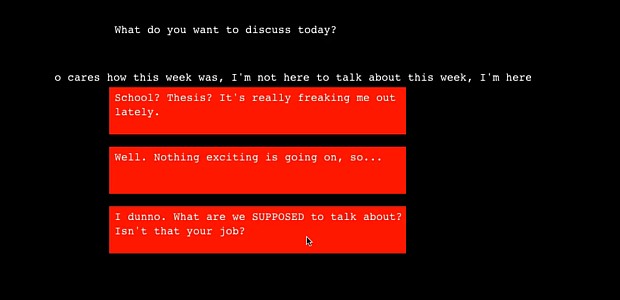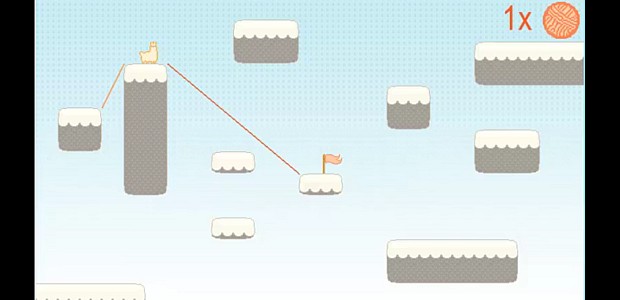Interview: Code Liberation On Game Workshops For Women
class Goodthing {
The Code Liberation Foundation offers free game development workshops for people identifying as women in New York City. So far they've provided short courses on C++ and openFramework, as well as their own game jam, and between now and the end of the year they'll be offering classes in GameMaker, HTML5 and Unity.
I spoke to Nina Freeman, one of the foundation's founders, about the whys, hows and future of the project.
RPS: What is Code Liberation and how did you get involved?
Freeman: Code Liberation began this past summer when Phoenix Perry asked myself and four other NYC game dev women (Jane Friedhoff, Catt Small and Mei Chan) over for pizza. She had been to GDC (where I met her) when she was showing a game at the PlayStation booth; people kept asking her if she could "direct them to one of the game developers."
So, over pizza, we shared our frustrations with the lack of women in games, and that's how Code Liberation was born. We decided to teach a 3-month long introduction to C++ games programming class. We had 15-20 girls (aged early twenties to early fifties) attend the class taught by myself, Phoenix and Jane, over the course of the summer. Now, we regularly offer free game programming and development workshops to anyone identifying as a woman.
RPS: What kind of response have you had so far - how many people are coming to classes?
Freeman: It's been super positive, and our first class asked for more immediately. Once fall rolled around and we had finished our first C++ course, I decided it was time to organize a game jam. We offered two openFrameworks workshops before the game jam (open to jammers and those who couldn't make the jam) taught by myself and Jane. I think about 40 women showed up between the two classes.
Our game jam turned out 4 really great games (12 girls, each on small teams), which I will link below. That game jam was our last big event and it took place at the end of September. We've already been getting e-mails asking for more classes, so our next series will be at the end of this month with a GameMaker workshop and HTML5/JS games workshop.
Our jam got some great news coverage, and there's an interview with me at the jam. The four jam games were Beacon, IntraTerrestrial, Therapy Sesh and Tangle.
RPS: How are you supporting the courses when they're free? Do you accept donations?
Freeman: Right now, this is all one great labor of love for us. NYU-Poly and the NYU Game Center have been super supportive, and have even offered us free space to hold our events, so that's what we've been doing so far. We teach this stuff for free because we know how important it is. If no one takes any action, the lack of women in games will continue to be an issue. We are accepting donations on our website via that big link on the bottom. We're definitely growing quickly, so money is in the forefront of our minds right now and we are planning some big stuff regarding that for this upcoming year.
RPS: How much can you cover in a single course?
Freeman: The course I'm currently teaching is our first middle/high school course. I have about 12 girls attending the course, all of which have little to no experience programming, but are very excited about games. The class is an introduction to C++ games programming via openFrameworks. My goal is to teach them the basics of C++ programming and game logic so that they can leave the course with the tools to build their own prototypes and games using openFramework.
RPS: Why do you think it's important that there are courses that cater specifically to those who identify as women
Freeman: We're really focusing our efforts on people that identify as women because there’s no time to fool around. We need to close the gender gap in games. One of our primary goals is to provide a safe space that is comfortable for any woman who wants to learn. That said, some of our students have encountered abuse and stereotyping in the context of games in the past, and openly feel more comfortable being in a class taught by women for women. It's important for us to provide a positive learning environment for them, because otherwise they may just not come at all.
Of course, not all women feel this way, but we wanted to provide a safe space to those who need it. These kinds of groups exist in tech that offer similar programs, such as PyLadies and Girls Who Code, and they've been highly successful. We know that games needs this kind of organization so that those ladies who wouldn't otherwise take a games programming class would see us and think, "Wow, they want to help me, and they’re making an effort to offer me a space that I feel comfortable learning in."
RPS: If people aren't in New York or can't attend a course in person, are there other ways they can get involved or support the foundation?
Freeman: Absolutely! We're always looking for people outside of NYC that want to help, and we are hopefully going to see some new chapters opening up in other parts of the states (and the world!) as well.
Part of our goal is to make games programming accessible to women, and a big part of that is compiling learning materials online. We put all of our slides up on Github where they're accessible to anyone wanting to learn or teach their own class. Code Liberation has spoken all over the place, from MIT to Indiecade, and we're really reaching out to find both students and mentors that want to support and participate in our cause. The wheels are certainly turning!
Read more about Code Liberation on the official site. It is really cool. If you know of any similar projects, send them my way and I'll look into covering them.



